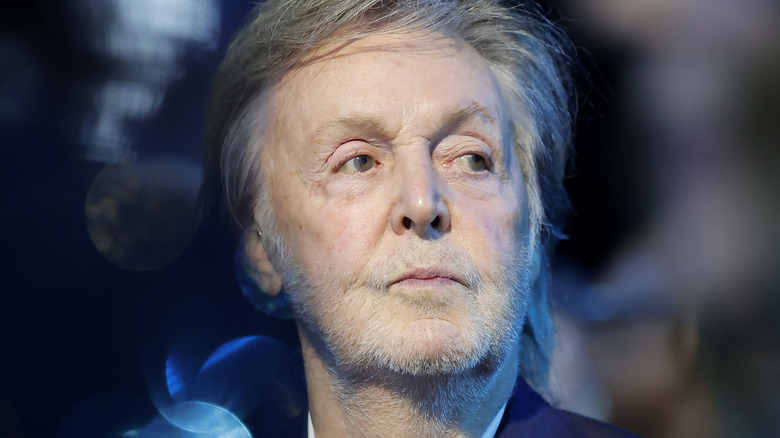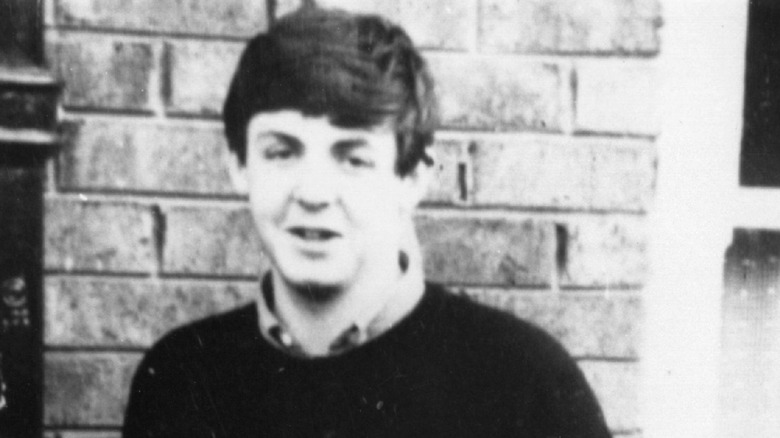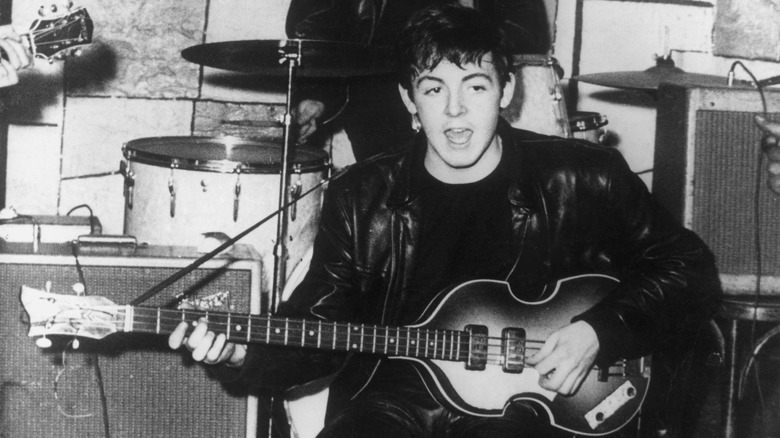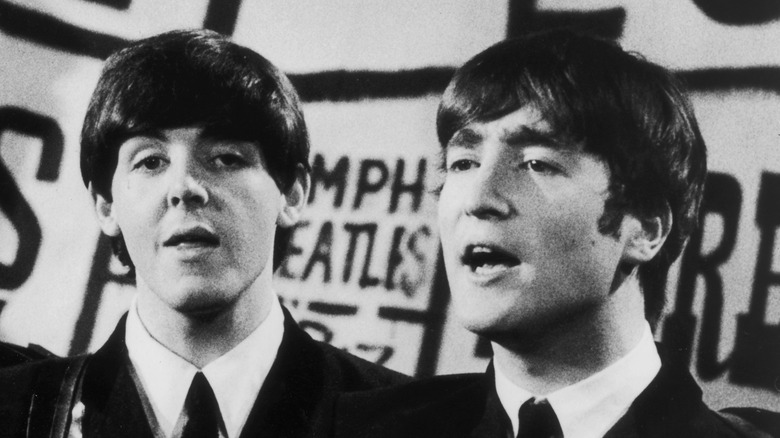The Most Tragic Detail About Paul McCartney Everyone Forgets
Paul McCartney's 21st-century persona has been shaped by more than six decades spent in the public eye. From the early days of Beatlemania, he quickly became famous for his cheekiness, joviality, and quick wit, as well as his relaxed attitude to fame even as he achieved success after success. Arguably, he is considered on the lighter-hearted side of the Fab Four alongside Ringo Starr, while George Harrison and John Lennon are known for their comparative acerbicness. Lennon, in particular, is often considered the most tragic Beatle, with a difficult upbringing, personal problems, and addiction to deal with during a lifetime that was shockingly cut short at the age of 40 when he was shot to death outside his New York City apartment.
But McCartney has also faced his own tragedies, most famously the death of his wife and musical collaborator Linda McCartney, who died of breast cancer in 1998. McCartney was also in the newspapers consistently during the 2000s due to his acrimonious divorce from his second wife, Heather Mills, which reportedly took a tremendous emotional toll on the songwriter. Both of these trials in McCartney's personal life took place after he had already achieved worldwide fame and are commonly known among his fans. But fans are less likely to recall that, like his future songwriting partner John Lennon, McCartney also experienced a painful adolescence due to the loss of his mother, Mary, who died when he was just 14 years old.
Mary McCartney's illness and death
Barry Miles' groundbreaking biography of Paul McCartney, "Paul McCartney: Many Years From Now," which includes input from the Beatles songwriter, gives a detailed insight into the harrowing death of McCartney's mother and how he dealt with it. Mary McCartney was a nurse who worked at Liverpool's Walton Hospital. Paul remembers her as a loving mother who loved to cuddle her children and was very caring if they were injured.
Though she worked with doctors every day, she was hesitant to tell her colleagues when she began to feel a pain in her breast and discovered a lump. Eventually she received a breast cancer diagnosis and had a mastectomy. She died on October 31, 1956, aged 47. Her cause of death was an embolism that developed in the wake of surgery undertaken to save her. Her husband, Jim, was reportedly suicidal after Mary's death, but soon — with the help of the McCartney's wider family circle — became focused on how to raise his two sons without a mother.
Paul McCartney channeled his grief into creativity
Paul McCartney is today known as an exceptionally driven creative force who attempted to push the Beatles forward when the band was falling apart in the late 1960s and embarked on arguably the most successful solo career of the Fab Four in the decade that followed. He was also in Wings, whose "Band on the Run" album topped the charts on both sides of the Atlantic and spent almost two years on the British charts and over two years on American charts after its release in 1973 — all despite a brutally troubled recording history.
And the sense that McCartney turned to creativity in times of trouble is evident in the wake of Mary McCartney's death, too. According to "Many Years from Now," the future Beatle dealt with his loss through his growing interest in music, spending a great deal of his spare time learning to write songs on his acoustic guitar. The first song he ever wrote, "I Lost My Little Girl," was written shortly after his mother's death. "I don't think the song was about that," Paul told Barry Miles, "but of course, any psychiatrist getting hold of those two bits of information would say it was."
His loss bound him to John Lennon
Paul McCartney first met John Lennon the year after his mother's death, at a church fair where Lennon was performing with his skiffle group, the Quarrymen. McCartney, who had been honing his musical abilities nonstop, was able to impress his future songwriting partner with an impromptu performance on Lennon's guitar and the church piano. He was invited to join the group, and the two immediately gelled as musicians. But their emotional connection became even deeper the following year when Lennon lost his mother, Julia, when she died tragically in a traffic collision at the age of 44. Lennon was just 17, and the trauma of his loss remained present in his music in songs like "Julia," released with the Beatles in 1968, and his solo works "Mother" and "My Mummy's Dead," recorded with the Plastic Ono Band.
Toward the end of his Beatles career, McCartney wrote his own ballad dedicated to the memory of his mother: "Let It Be." The opening line is: "When I find myself in times of trouble mother Mary comes to me / Speaking words of wisdom, let it be." In interviews, McCartney has stated that the song came to him after he was visited by his mother in a dream.



